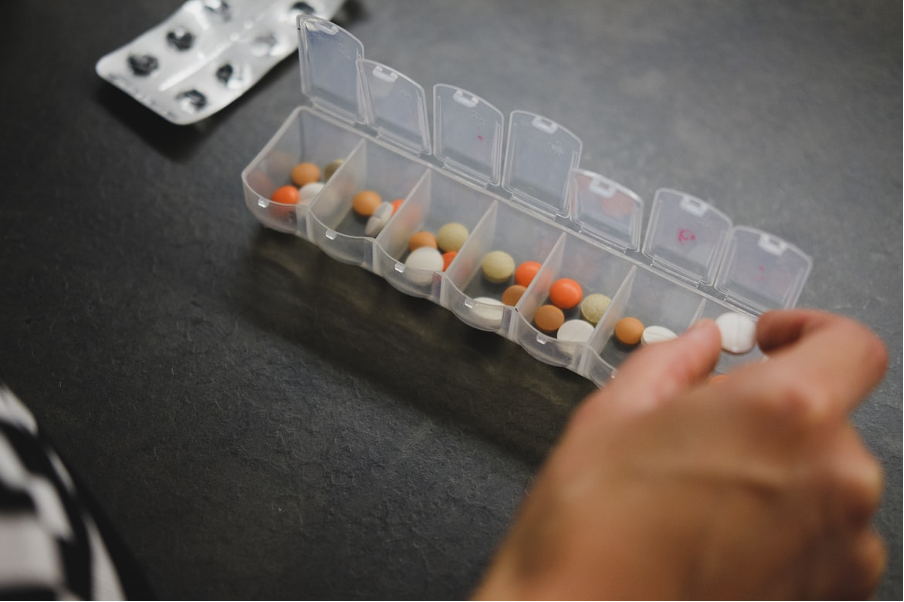Are you responsible for handling medication in the workplace? If so, it’s important to stay cognizant of best practices when dealing with this sensitive task. By understanding how to properly handle medications, such as knowing what materials are necessary, expiry dates, and disposal methods, ultimately you’ll be able to meet safety regulations that help protect both clients and staff. In this blog post, we’ll look at six core areas of information related to safely handling medications on the job. Through an understanding of these topics – from unit measurements to communicating potential side effects – you’ll have a strong working knowledge that will keep everyone safe.
Know the Different Types of Medication
Knowing the different types of medication available to provide relief or aid with medical care can help you make more informed decisions in regard to your health. Over-the-counter medications such as cold and allergy relief, decongestants, and even ibuprofen are some of the easier ones to recognize. More serious prescriptions may be tailored for specific conditions such as depression or infections. It is important to understand how each medication functions differently in order to safely take them and receive their full benefits.
Make Sure You Store It Safely
Handling medication properly is a huge component of keeping patients safe and healthy, so making sure to store it safely is a must. When storing medication, you should always aim to keep it away from extreme temperatures, moisture, and sunlight. Additionally, make sure that the storage space is secured and inaccessible to pets, children, or visitors. Keeping all these considerations in mind will help ensure mishandling or contamination doesn’t occur while also protecting surrounding family members. For example, vaccine storage needs to adhere to specific temperatures and can vary depending on the type of vaccine being handled. Similarly, having a safe place to store medical records is essential.
Read the Label Before Taking It
Before taking any medication, make sure to read the label carefully. It is critical to identify what active ingredients are in the medication and ensure that you take the right dosage. This is especially important when it comes to prescription medications, as they require special instructions regarding dosage, timing, and method of administration. Taking medication incorrectly may result in adverse effects, so always double-check the label information before taking any drugs.
Consult Your Doctor
Consult your doctor before handling medication – it’s absolutely essential. Even if you have experience with a particular drug or its effects, doctors and nurses know many important details about medications that you may not. Taking the time to bring your questions and concerns to their attention can be extremely beneficial for your well-being and understanding of what you’re taking. After all, no one knows your care better than the one trained in the medical field responsible for your health. Reach out to your doctor today to make sure you are properly informed when it comes to handling medication.
Follow The Directions Carefully
When it comes to taking or administering medication, carefully reading and following the directions is key. This means taking time to read labels, dosage instructions, and any other information attached to the medication. Paying attention to storage and expiration dates is also important. Not adhering to these steps increases the likelihood of an adverse reaction or side effects. It’s also a good idea to talk with your healthcare professional if you have questions about a particular medication – never be afraid to ask!
Discard or Dispose of Unused Medication Properly
Proper disposal of unused medication is an important step in medication management, not just to keep your own home safe but also for environmental health. It’s essential not to flush any medications down the toilet or drain as this could potentially pollute the water supply! Next time you have outdated or unused medication, remember that it’s best to return it for proper disposal at a retail pharmacy or other designated facilities. These places may have special procedures for disposing of controlled substances, syringes, and other medical waste to protect public safety and the environment.

Handling medication, both prescribed and over-the-counter, is of uttermost importance when it comes to your health and safety. Remember to read label information carefully, be aware of potential side effects – even if the medication seems harmless, follow instructions for dosage and storage, and take care to properly dispose of the remaining medication. Keeping these six tips in mind when dealing with medication will help ensure that you remain safe and healthy. No matter the stage of life – child or adult – it’s essential to always remind yourself of the dangers of improperly handling medications and their overdoses.

